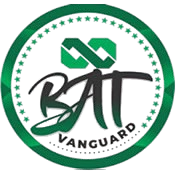With an approval from President Bola Ahmed Tinubu, the Student Loan Scheme, one of the cardinal programs of the administration, begun yesterday.
The N32 billion made available for the program will be loaned to successful applicants.
According to the Nigeria Education Loan Fund (NELFUND) – the agency running the scheme, 103,000 successful applications were received.
It said 164,000 students were registered between May 25 when the portal opened and July 17.
The President gave out dummy cheques to students and some vice-chancellors to symbolically kick-start the scheme.
The Student Loan Scheme is a novelty meant to make loans available to indigent students or those unable to pay their fees so that they do not drop out of school.
“No student will drop out of school again just because he has no means to pay the fee,” the President had declared while announcing the scheme.
Beneficiaries’ tuition will be paid directly to the institution, while only the stipend will be paid to successful applicants.
President Tinubu declared education as the biggest weapon against poverty and the most effective battle axe to fight insecurity.
He said: “What I believe is that education is the greatest weapon against poverty in any society.
“Without education, there is no vision, there is no development, you cannot successfully conquer insecurity.
“Education is that light at the end of the tunnel. No matter how sluggish you move, it will give you the light and the hope.
“We are investing; we don’t want to try ignorance as an alternative, we want education from foundations to the topmost level.
“Today (yesterday), I am fulfilling one of my greatest campaign agendas. You cannot find your way if you are not well educated, you cannot even fight terrorism and banditry.
“If we have a successful inclusive loan that is necessary for our people to get educated and invest in their own lives, we would have built a fair society and a promise that we will earn a banner without stain to our children.”
NELFUND’s Executive Secretary/Managing Director Akintunde Sawyerr restated that the scheme aims to empower youths by removing financial barriers to their academic pursuit.
Reeling out NELFUND’s progress since the launch, Sawyerr said the Fund got key amendments to its Establishment Act on April 3, 2024, and secured dashboard metrics on May 25.
He explained that students applied for two types of loan – educational fees which are sent directly to their institutions of learning and application for upkeep fund, which serves as their monthly stipend
“Institutions collected cheques for multiple applications but students cannot get stipend unless their fees are picked by NELFUND,’’ said Sawyerr.
Sawyerr told reporters after the launch that there was a higher demand for loan from students of tertiary institutions in the North.
He attributed the trend to their proactive approach and effective networking.
However, he noted that there is growing awareness and interest by students in the South, despite initial scepticism.
The NELFUND boss added that universities have the highest demand for loans, followed by polytechnics and teacher training colleges.
He said: “Institutions in the north have been very proactive in supporting and helping their students and in providing their data to us.
‘’They seem to be very well organised in terms of networking.
“In the Southern part of the country, there’s growing awareness and there’s growing interest.
“I think there’s been a lot of scepticism, generally and I think the most sceptical parts of the country are in the South. They question everything: is it true, is it real, is it a scam?
“This disbursement programme is to say that ‘this is NO FUND, this is NELFUND.’
“We’re trying to ensure that people know that this is not a trick, it’s not a game.
“Mr. President has backed this with cash and we’re going to disburse that cash.
“So, I think we’ll see the scepticism that you can find mainly in the Southern part begin to disappear when we start paying out.”
He added: “In terms of the three levels of institutions, the universities are the ones with the highest demand for the loans.
“It’s followed by the polytechnics and then the teacher training colleges.’’
The Executive Secretary said private institutions are excluded from the scheme because they charge higher tuition.
He thanked President Tinubu ‘’for having the vision and the courage to do what he has just done.’’
“I am sure you’ve all heard that fortune favours the brave and this courageous move will bring fortune not just to him, but to the entire nation,” he said.
Present at the launch were Senate President Godswill Akpabio, Speaker of the House of Representatives Abbas Tajudeen; Wale Edun (Minister of Finance and Coordinating Minister of the Economy), Abubakar Bagudu (Budget and Economic Planning minister), Mamman Tahiru (Education minister) and Jamila Bio-Ibrahim (Youths minister).
Chairman NELFUND board Jim Ovia thanked the President for the privilege to serve.
He referred to the United Nations Sustainable Development Goals, of which education is number four.
“The President has recognised that. We are all grateful to him for NELFUND,” Ovia said.
Central Bank of Nigeria (CBN) Governor Olayemi Cardoso, Federal Inland Revenue Service (FIRS ) Chairman Zach Adedeji, Acting Executive Secretary of National Universities Commission (NUC) Chris Mayaiki and Joint Admissions and Matriculation Board Chairman Ishaq Oloyede were also in attendance.

